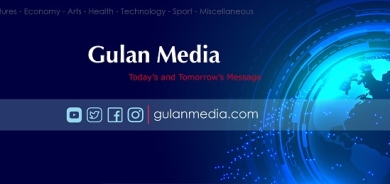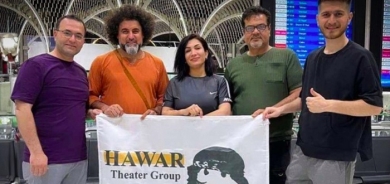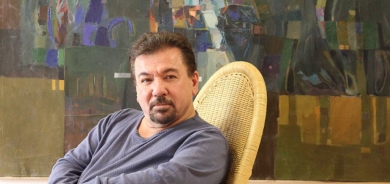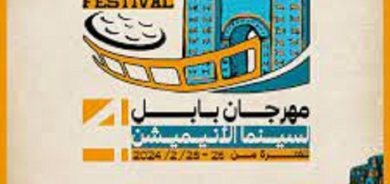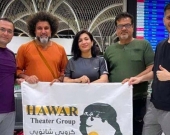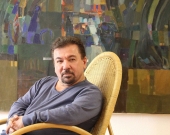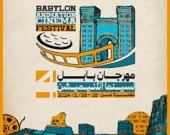David Harvey reveals actors, tools for a fair world

Professor David Harvey’s intellectual production over 50 years gives a critical account for the ills of capitalism, social justice and invites his readers to think on the possibility of a fair civilization.
In an interview about the role of the reader, writer and everyday people in a social resistance, he reveals the actors and the tools for a humane, fair world.
“Rebel Cities,” “A Brief History of Neoliberalism,” “Seventeen Contradictions and the End of Capitalism,” your books all share a common ground; you present a reading to the historical aims of the capital, reveal the mechanism of the neoliberal strategy and how it reshapes whole culture and the city just to direct the capital flow into one single class. Reasons for the unhappiness of the rest are thus revealed. Yet, in these books you always give a glimpse of hope by suggesting a contra-hegemonic line where the progressive forces of the city, the left, civil society and many are also positioned. Today if a contra hegemonic resistance is a wish, who and what might be the actors?
We are all actors whether we like it or not. The question is how and why we direct our actions to particular ends as opposed to simply acting in a way that confirms and reproduces an existing reality (including its dominant social relations and its metabolic relations to nature)? This requires an analysis of what is wrong with the existing system. That system is today powered mainly by a mixture of state authoritarianism and neoliberal global and local capitalist practices. The coalition of forces that are potentially opposed to the reproduction of this existing order is very large as well as widespread but its capacity to bond together and act is restricted by internal divisions and the exercise of military and police powers on the part of state apparatuses. It will take organization and leadership to forge an anti-capitalist and anti-authoritarian alliance. It will also require the creation of consistent mental conceptions and analyses of what it wrong with the world and a broad convergence of thinking as to what to do about it. But in such a movement everyone should be welcome. There is no naturally anointed or politically appointed vanguard to play a leadership role.
“A Brief History of Neoliberalism” puts it out clearly that some popularized cultural theories are intentionally structured to justify neoliberalism as a mode of governance. “Public sphere” you explained is also “reconstructed for these interests.” Considering the public sphere as a space for free expression and experience, can art be a tool in its transference into a progressive agent serving back to the public again? Or is it a bad idea to instrumentalise art just as neoliberal economy positioning it as a commodity?
Art and other cultural practices always have the potential to create support for progressive movements but they can also be used to support the status quo or to foment reactionary politics. They are, therefore, a field of struggle like everything else but the unintended consequences always make it hard to instrumentalize art for a particular political purpose. But art for art’s sake is in my view also impossible. I would hope that progressive artists would saturate the world with an art that expresses their emancipatory views. From this standpoint, freedom of expression is an important value to cultivate and to fight for even as its basis lies in liberal ideology.
Opposing discourse created by academicians, culture practitioners and literature is due to heavy punishment in Turkey. How can cultural practices play their roles as progressive forces, how do they establish ties with the street when cultural activity is positioned as an elite consumption available for the privileged under the neoliberal cultural policy?
Cultural practices play a crucial role in organizing and legitimating certain practices of daily life. To the degree that the politics of daily life today defines a terrain of political uncertainty and struggle, just as, if not more important than the politics of the workplace, so cultural practices become imbued with a powerful political content that no government or authority can fully control or contain. It follows that all forms of cultural discourse – writing and literature, music, dance and song, festivals and celebrations, painting, sewing and making things, photographs and videos, etc. – all have a role to play in the reproduction of daily life and create, thereby, potential points of intervention in political struggle.
How does capital regard literature and art? What strategies does it employ to paralyze their oppositional nature?
Capital regards art and literature as commodities like everything else. It tries to regulate their production and circulation through market mechanisms. It tries to control content by censorship and the shaping of public opinion through the media. But by virtue of their form, cultural practices are hard to control and always a potential vehicle for subversion. The financial cooptation of artistic practices has important but in the end limited effects. And even when some practices – like punk music, hip-hop and rap – become fully commercialized it is still hard to manage its content in a way that denies its social origins as protest music against racism and social inequality. Conversely, even cultural projects designed to pacify discontents – such as typical Hollywood films – can produce unexpected consequences and play a didactic role in portraying the origins of our discontents. Just because something is funded by big capital does not automatically mean its content is totally reactionary.
In your speeches you refer to Gezi very often. Despite Gezi, the elections are finalized with the victory of the neoliberal-neo conservative party. The voters from the middle class wanted consistency and protection from the economic crisis but in the end none of them can be said to be present today. What can the left do?
It is not uncommon for an eruption like Gezi to be followed in the short run by a conservative reaction to re-establish law and order and political stability. But it is important not to let the Gezi process go under because in the long run it can have powerful after-shocks on political society. As an integral part of political memory it can animate future movements and it is important to (a) keep the movement alive in the political consciousness of the population and (b) seek to build upon it particularly with the younger generation by whatever means possible. In this way the revolutionary spirit can remain latent in a population.
Hurriyet Daily News



